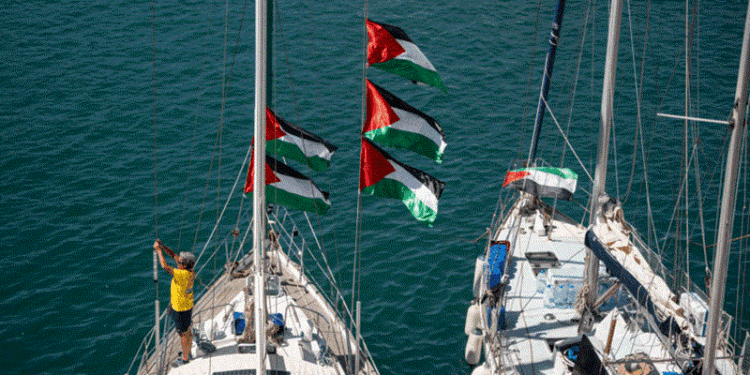The Soumoud flotilla is not only a maritime operation. It is a symbol of regional and international solidarity, an act of challenge in the face of the blockade which deprives the Gaza band of vital humanitarian aid.
From Barcelona to the Tunisian ports, activists from more than 44 countries converge on this convoy, carrying with them the hope of an oppressed people and the message of a citizen mobilization which refuses to remain silent.
However, behind popular fervor, the complexities of a world in crisis are taking shape. Delays, weather conditions, technical checks and incidents – including drone attacks against two ships – recall the fragility of civil initiatives in conflict areas. Tunisia, by facilitating logistical preparation while remaining prudent diplomatic, embodies the tension between humanitarian commitment and geopolitical constraints.
But the Soumoud flotilla transcends obstacles. It illustrates the power of citizen mobilization and the growing role of civil diplomacy. Each boat, each donation, each participant becomes a link in the international solidarity chain, sending a clear message to international governments and bodies: when politics fails to protect civilians, civil society takes over.
In the end, the mission of the Soumoud flotilla is not only to break a maritime blockade, it is a demonstration of courage, dignity and humanity. And in this context, Tunisia, positioning itself as a regional solidarity platform, plays a role that goes far beyond the simple framework of its ports: it makes a universal call for justice and human rights.








